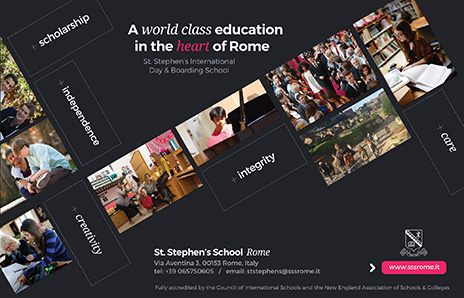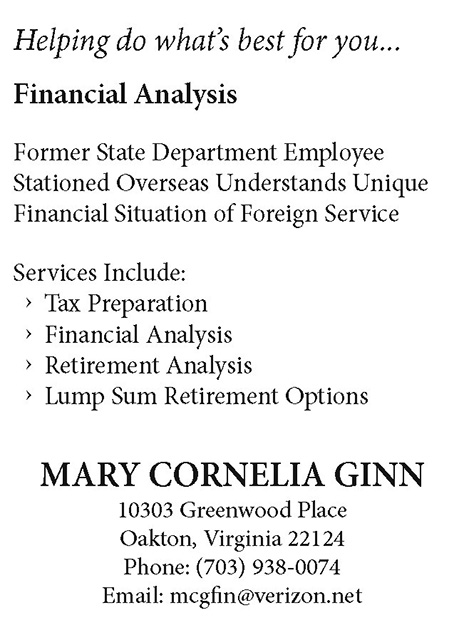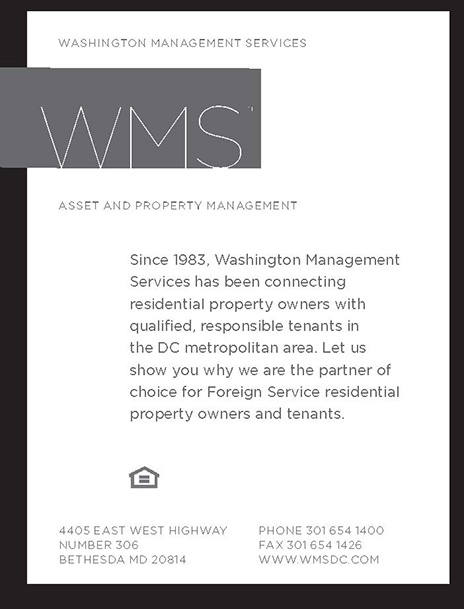The Payne Fellowship Network: Advancing DEIA at USAID
Payne Fellows and alums have created a dynamic new employee resource group that is working to boost recruitment and retention of diverse FSOs.
BY MARIELA MEDINA CASTELLANOS

The Payne Fellowship Network leadership.
Courtesy of Mariela Medina Castellanos
At the U.S. Agency for International Development, the nationally competitive Payne Fellowship continues to be a vital part of the effort toachieve a workforce that is representative of the rich diversity of the United States. The agency’s only Foreign Service hiring and recruitment mechanism targeting underrepresented groups, the fellowship aims to attract outstanding leaders from diverse backgrounds to international development careers at the agency.
The Payne Fellowship turns 10 this year. It is modeled after the Pickering and Rangel Fellowships at the Department of State and, as such, is a critical mechanism for enhancing diversity, equity, inclusion and accessibility (DEIA) in the agency’s Foreign Service. It is highly selective, with an acceptance rate less than 1 percent—lower than that of USAID’s Foreign Service.
USAID has made steadily increasing investments in the Payne Fellowship program, which enjoys bipartisan congressional support that transcends changes from one administration to the next, since its inception in 2012. The agency’s recent commitment to double the number of fellowships is an important step to achieving a representative workforce.
About 50 Payne Fellowship alumni currently serve at USAID across 15 Foreign Service backstops. They serve in Foreign Service officer roles ranging from technical project managers to office directors in USAID missions worldwide; they also serve as advisers to USAID’s front office in Washington, D.C., and support various employee resource groups in their endeavors to further the agency’s DEIA agenda.
It has become apparent, however, that recruitment of Payne Fellows, by itself, is not enough. Diverse FSOs face problems of equity, inclusion and accessibility in tenure and promotion that, among other things, affect retention rates. In 2020, a group of Payne alumni created the Payne Fellowship Network, an employee resource group, to proactively tackle these challenges head-on, addressing obstacles throughout the course of the Payne Fellows’ USAID career.
Enter the Payne Fellowship Network
Two years ago, a small group of Payne alumni began discussing the need to increase the profile of the fellowship, problems with onboarding Payne Fellows to USAID’s Foreign Service, and obstacles to career development and advancement of Payne alumni at the agency. The challenges include a stigma associated with joining USAID through the fellowship program (based on the mistaken assumption that it is an “affirmative action” program rather than a highly competitive, merit-based program). Challenges also include data gaps in longer-term tracking of Payne cohorts once they enter USAID as FSOs.
Some challenges also extend to other members of the Foreign Service of diverse backgrounds at USAID; for example, Hispanic/Latino and Asian employees and FS members with disabilities resign at a higher rate compared to their permanent workforce percentage. And these groups plus Black employees are also underrepresented in the senior grade levels of the agency. Payne Fellows and Payne alumni, however, often face unique structural constraints. These issues jeopardize USAID’s ability to sustain diversity at all ranks, which has been acknowledged as an agency priority.
Determined to address this, the group organized USAID’s broader community of Payne alumni into a bloc and recruited “executive champions” in Washington and at overseas field missions. Executive champions are members of the Senior Foreign Service who serve as leadership liaisons and provide guidance to the group; the backing of at least one is required to establish a new employee resource group (ERG) at USAID. Payne alumni then worked with USAID’s Office of Civil Rights and Diversity to consolidate their individual networks into the “Payne Fellowship Network,” an officially recognized ERG. The network contains more than 150 members at all levels of the agency, including its current executive champions: Senior FSO and USUN Geneva Senior Development Adviser Sheri-Nouane Duncan-Jones and USAID Bureau for Global Health Deputy Assistant Administrator Melissa Jones.
The Payne Fellowship Network’s objectives are to build greater awareness of and support for the fellowship at USAID; to support the recruitment, onboarding and retention of Payne Fellowship alumni; to provide fellows and alumni the means to better support one another; and to leverage the existing network of mentors, champions and resources within the agency to ensure the program’s continued success.
The network maximizes its impact by strategically engaging allies and champions of the fellowship and forging partnerships that enable it to access resources and advance priorities. One such partnership is with USAID’s rich employee community through the Employee Resource Group Leadership Council. As USAID reinvigorated DEIA efforts under the Biden-Harris administration, the network partnered with other employee groups to elevate Payne alumni concerns and recommendations to incoming Administrator Samantha Power through her 200-day Action Plan on DEIA. Administrator Power selected Payne Fellow Katryna Mahoney to serve as the moderator for her presentation on “A New Vision for Global Development,” where she first announced the agency’s priorities.
The network also helped amplify calls to action for USAID leadership on DEIA issues including gender and racial equality, as well as issues affecting young professionals. Administrator Power approved USAID’s DEIA Strategic Plan on her first day in office. The plan “commits USAID to improving and enhancing diversity throughout the agency, enhancing inclusion and equity for everyone in the workplace, and strengthening accountability for promoting and sustaining a diverse workforce and an inclusive agency culture.” The network directly contributes to the strategic plan’s goal by addressing systemic issues that inhibit the success of the Payne Fellowship program’s participants in addition to DEIA efforts more broadly.
Strategic Partnerships
In addition, the Payne Fellowship Network (PFN) works closely with mid- and senior-level alumni of the International Career Advancement Program, a professional development and leadership program for mid-career professionals in international affairs, at USAID. The ICAP Payne Advisory Group formed in 2019 around the view that the Payne Fellowship Program would benefit from additional, concerted support focused on both recruitment and retention. ICAP Advisory Group members and PFN board members regularly coordinate advocacy efforts with USAID’s Office of Human Capital and Talent Management, as well as with the USAID front office and Howard University (the fellowship’s current implementing partner). Together, the PFN and ICAP Advisory Group have cemented connections to the agency’s broader DEIA efforts, recruited a record number of FSO mentors for current Payne Fellows, and hosted a series of professional development seminars for Payne Fellows and alumni.
The Payne Fellowship Network also meets regularly with leadership of USAID’s human resources division (through the HCTM Foreign Service Center) to develop solutions for concerns raised by Payne alumni. As Aaron Scherf, 2017 Payne alum and network member, notes: “The PFN [Payne Fellowship Network] leverages its connections and our alumni experiences to advocate for policies and programs that advance the retention of diverse FSOs more broadly. As an example, PFN has pushed for greater consideration of the safety of LGBTQI+ officers in directed assignments and for more professional mentorship programs for officers of color.”
Since its inception in 2020, the network has regularly solicited Payne alumni feedback to raise issues with relevant stakeholders among USAID leadership. Partnership with the Foreign Service Center (HCTM/FSC) has helped make the onboarding and orientation processes more equitable and inclusive, improved external recruitment efforts and assignment processes for LGBTQI+ persons, and provided feedback on broader efforts on behalf of the USAID Foreign Service community.
Another important network partner is the Pickering and Rangel Fellows Association. Together, PFN and PRFA are exploring ways to exchange lessons learned on advocating for alumni needs and interests, support common advocacy efforts, and collaborate on professional development and networking opportunities among State and USAID FSOs overseas. All these efforts combined are building a solid foundation for FSOs of diverse backgrounds to access the resources and support needed for successful long-term Foreign Service careers.
These partnerships are the building blocks of the collective voice of Payne Fellows and alumni at USAID, whose advocacy efforts also benefit other FSOs from diverse backgrounds at the agency. A rising tide lifts all boats.
Raising Awareness
PFN Executive Champion Duncan-Jones has emphasized the important role the network plays at USAID: “The Network is instrumental in providing leadership and strategic direction to increase awareness and understanding about, and support for the Payne Fellowship and Payne alumni. After only a short period, the Network has quickly become a recognized valuable Agency resource, high employee retention is expected, and the qualified Payne Fellowship applicant pool has steadily increased since its inception.”
The network has advocated for the unique needs of Payne alumni in high-level fora and institutionalized regular communication and feedback between Payne Fellows and alumni, the USAID front office, human resources, Payne Fellowship founders, and the implementing partner university, among other stakeholders. PFN has educated USAID staff worldwide about the Payne Fellowship and has created sustainable channels for Payne Fellowship alumni to engage with USAID leadership to solve problems for years to come. The alumni feedback facilitated by the network, for example, has enhanced the Payne Fellowship’s follow-on award and helped improve broader FSO processes like onboarding and assignments.
The Payne Fellowship Network is proud to be a change agent in the DEIA space because these achievements benefit FSOs across USAID. We hope that this momentum will continue to be embraced by the agency at all levels through targeted and actionable reforms. PFN is setting the groundwork to recruit and retain a more inclusive and representative USAID Foreign Service and diplomatic corps, thereby increasing returns on USAID’s investment in DEIA across the agency. The growth of the Payne Fellowship and the work of the network can illustrate the power of a Foreign Service that increasingly represents the rich diversity of the United States abroad.
How FSJ Readers Can Support PFN
Now that readers are familiar with the Payne Fellowship Network at USAID, we ask our interagency colleagues to help spread the word about this prestigious fellowship throughout your networks. For USAID readers, we ask you to support the career development of Payne Fellows and alumni by:
- Mentoring fellows and alumni.
- Hosting fellow summer placements.
- Supporting fellow and alumni rotations, details and temporary assignments.
- Providing guidance to alumni through critical career junctures including bidding, tenure and promotions.
PFN is always looking for new members to help champion its cause at USAID. To connect with the PFN Board or get involved in PFN efforts, please email PayneFellowshipNetworkBoard@usaid.gov.

Ten Recommendations from the Payne Fellowship Network
In June 2021, the Payne Fellowship Network and the International Career Advancement Program Advisory Board jointly delivered a presentation to the USAID Executive Diversity Council on the Payne Fellowship’s history and importance, as well as a set of recommendations for how senior leadership can better support the Payne Fellowship and its participants. The Executive Diversity Council is made up of USAID senior leadership and provides agencywide guidance for DEIA initiatives and investments and champions workforce diversity and inclusion as core values at USAID. The 10 recommendations are outlined here.
Education and Awareness Raising
1. Strengthen internal and external awareness of the Payne Fellowship, including program eligibility and structure, key stakeholder groups, and importance to diversity, equity, inclusion and accessibility at USAID.
Career Development of Payne Fellows and Alumni
2. Mentor, coach and sponsor Payne Fellows and alumni; and amplify annual calls for summer placements and mentors for Payne Fellows.
3. Institutionalize the encouragement of overseas missions and supervisors to support the career development of Payne alumni by assigning them meaningful work and nominating them for leadership opportunities.
4. Equip backstop coordinators, assignments and career counselors, and USAID/W supervisors to effectively advise and support alumni as they transition to USAID and start their Foreign Service careers.
Resource Allocation
5. Increase USAID staffing and/or level of engagement exclusively dedicated to the fellowship.
6. Allocate greater funding, both to increase annual Payne cohort size and to standardize baseline grade/step for equity.
Legislative and Policy Priorities
7. Foster greater Legislative and Public Affairs Bureau engagement in publicizing the Payne Fellowship, Hill engagement and facilitating Payne Fellows’ summer placements.
8. Reinstate internal USAID policy that allowed the agency to limit competition for the Payne Fellowship implementing partner to minority-serving institutions. This policy was eliminated in 2019 and made specific to only small/disadvantaged businesses.
Monitoring, Evaluation and Learning
9. Ensure coordination among agency counterparts to regularly assess Payne Fellowship progress; and to identify and course-correct barriers to effective recruitment, retention and career advancement of Payne Fellows and alumni.
Strengthening Feedback Loops
10. Normalize communication between the USAID leadership and key USAID stakeholders (including fellowship alumni) to ensure mutual awareness of program-related accomplishments, challenges and support opportunities.
These recommendations feed into broader diversity, equity, inclusion and accessibility efforts at USAID, including workforce planning, recruitment and retention across demographic categories. PFN continues to work with the agency’s front office and other institutional actors to advance these recommendations, organizing focused discussions on specific recommendations and identifying stakeholders to take institutional ownership of specific activities under each recommendation.
Read More...
- “The Payne Fellowship: Boosting Diversity at USAID,” by Youshea Berry, The Foreign Service Journal, October 2020
- “Hispanic Representation at USAID: Why So Low for So Long?” by José Garzón, The Foreign Service Journal, March 2014
- “Q&A with USAID Administrator Samantha Power,” The Foreign Service Journal, November 2021










